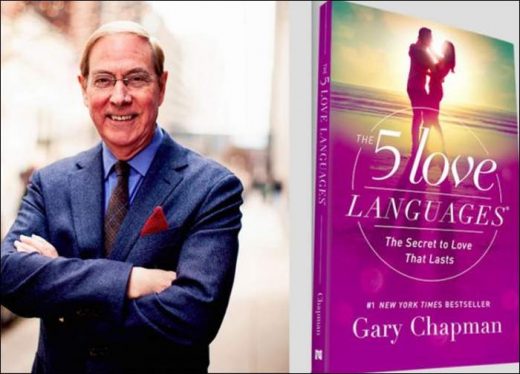Review for the book The 5 Love Languages. Understanding your partner’s love language and sharing your own love language with them is an important step in helping you feel love and appreciation. In his book “The 5 Love Languages”, author Gary Chapman explains how you can effectively win your partner’s heart and use their love languages. If you want to strengthen the bond in your relationship and develop a deeper understanding, continue reading the article.
love languages, the 5 love languages, gary chapman, gary chapman book, dating and romance, dating tips, sharing love language, relationships, developing a deeper understanding, words of affirmation, physical contact, buying a gift
Five love languages
Gary Chapman began to notice certain patterns among the couples he counseled and observed that people often misunderstood each other’s needs. In this direction, he led him to understand five different love languages, or the ways people express love in their relationships, and published his book “5 Love Languages” in 1992.
These five love languages describe five ways people receive and express love in a relationship. These; Words of affirmation, quality time, physical contact, doing good deeds and receiving gifts.
Words of Affirmation
“Words of affirmation” are a way to express love out loud. Expressing praise and appreciation. When this is a person’s primary love tooth; That person enjoys kind words, encouragement, morale boosting, declarations of love, notes with beautiful words, and loving messages. You can make this person’s day by complimenting them or pointing out what they did well.
Quality Time
Someone with this love language wants undivided attention. So, if you focus only on your partner when you are together, that is how he will feel loved the most. This means putting down the cell phone, turning off the computer, making eye contact, and actively listening. If your entire focus is on your partner when you spend time together, you will make them truly happy.
A quick note: People with this love language seek quality over quantity.
Physical Contact
A person whose primary love language is physical touch feels love through physical affection. Apart from sex, he also feels loved when his partner holds his hand, hugs him, touches his arm or massages him at the end of the day.
If you have a partner whose primary love language is physical touch, spending time cuddling on the couch with a glass of wine and a good movie will mean a great date for your partner.
Helping your partner
If your partner is mostly happy when you do something that lightens their burden or reduces their stress, their primary love language may be kindness. For example, when he comes home tired from work, taking care of the housework alone, picking him up and dropping him off somewhere, preparing the meal he wants are the actions that make your partner, whose primary love language is “kindness”, the happiest. “Is there anything I can do for you today?” Even the question will make your partner very happy.
Buy a gift
For a person with this love language, receiving a gift expresses love and affection. People whose primary love language is “receiving gifts” do not necessarily expect large and expensive gifts; What matters is the effort and thought behind the gift.
How can you define your love language?
When in a relationship do you feel most loved? You should focus on this first. When he tells you he loves you and appreciates you, when he surprises you with meaningful gifts, when he plans a private vacation, when he prepares a meal for you, helps with the housework, or never lets go of your hand while walking…
Thinking about these scenarios may give you a clue as to what your love language might be. Also, think about how you express your love to your partner, are you approaching it in the right way? Chapman also offers a 30-question online quiz to help you determine your primary love language.
Your partner’s love language may not be the same as yours. When couples have different primary love languages, misunderstandings are inevitable. But if your partner learns to speak your love language (and you theirs), you’ll both likely feel loved and valued; so you will feel happier in your relationship.
Love languages in daily life
According to Chapman, love languages also apply to relationships between parents and children, co-workers and friends. For example, if your child’s primary love language is affirmation, he or she especially wants to hear praise and phrases like “I love you.” This is highly individual: A coworker may feel more appreciated if you use one love language over another. Of course, your love language may change from time to time.
For example, if you had a bad day at work, you might prefer a hug from your partner rather than a word of encouragement. This also goes for your partner. He or she may not always need the same love language. Momentary situations may sometimes require another love language. The trick here is to communicate with your partner regularly and ask what he or she needs to feel valued, heard, appreciated and loved.
Views: 378



